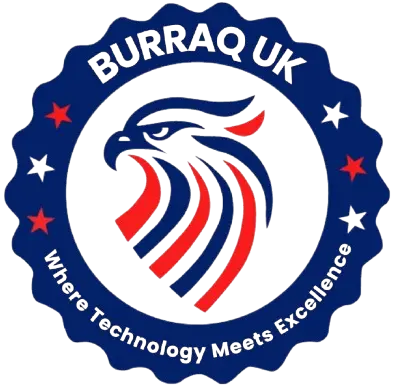Advance Arduino Training
The Advance Arduino Training at Burraq UK is a leading Arduino course in the UK for learners looking to enhance microcontroller skills, sensor integration, and IoT applications. This hands-on, project-based course equips students with practical experience to design and deploy professional electronic systems for real-world applications.

Advance Arduino Training Curriculum – Learn Arduino in UK
Our Advance Arduino in UK curriculum covers advanced coding techniques, working with analog and digital sensors, and communication protocols like I2C, SPI, and UART. Students also learn to interface modules such as GPS, GSM, RFID, Bluetooth, and WiFi, build real-time IoT applications, and develop complete hardware projects. With a strong focus on troubleshooting, circuit design, and system integration, learners acquire practical skills that directly translate into career-ready expertise.
Advance Arduino Training Curriculum – Learn Arduino in UK
Completing Advance Arduino Training near me opens doors to numerous career paths in embedded systems, IoT development, robotics, and automation. Graduates can pursue roles such as Embedded Systems Technician, IoT Developer, Electronics Project Designer, and Automation Assistant Engineer. As demand for smart devices and connected systems grows, professionals trained in advanced Arduino applications are highly sought-after, making this course a valuable investment in your future.
Course Overview
Advance Arduino Training
- Basic understanding of Arduino and microcontroller programming
- Prior completion of a beginner-level Arduino course (recommended but not mandatory)
- Students or graduates in Electrical, Electronics, Mechatronics, Computer Engineering, or IT
- Technicians, hobbyists, or professionals with interest in embedded systems or IoT
- Ability to understand basic C/C++ programming and circuit design
| Course Code | Curriculum Title | Credit | DLH |
|---|---|---|---|
| BUK1121-1 | Brief into of level 1 | 3 | 30 |
| BUK1121-2 | DATA communication between Arduinos | 3 | 30 |
| BUK1121-3 | Machine to machine communication | 3 | 30 |
| BUK1121-4 | Intro to Bluetooth module | 3 | 30 |
| BUK1121-5 | Node mcu+esp intro | 3 | 30 |
| BUK1121-6 | Node Mcu programming | 3 | 30 |
| BUK1121-7 | Interfacing Arduino with Wi-Fi module | 3 | 30 |
| BUK1121-8 | Taking light intensity on mobile app | 3 | 30 |
| BUK1121-9 | Control/dim LED from mobile app | 3 | 30 |
| BUK1121-10 | Intro to Iot web browsers | 3 | 30 |
Objectives
- Brief into of level 1
- DATA communication between Arduinos
- Master slave configuration
- Machine to machine communication
- Rs485 communication with industrial sensors
- Saving analog data to excel file
- Intro to Bluetooth module
- BT module interfacing with Arduino
- Designing basic mobile app
- Connecting BT module with mobile app
- Introduction to esp8266
- Node mcu+esp intro
- Node Mcu programming
- Esp8266 serial communication
- Interfacing Arduino with Wi-Fi modules
- Adding Arduino access over internet
- Making web page and server for Arduino
- Controlling Arduino via internet
- Taking digital pin data/status on mobile app
- Showing temperature sensor data on mobile
- Taking light intensity on mobile app
- Control/dim LED from mobile app
- Control AC light bulb via android app
- ON-OFF / dim fan via android app
- Taking digital pin data/status on web pages
- Showing temperature sensor data on web server
- Taking light intensity on web server
- Designing of Bluetooth controlled devices
- Designing of Wi-Fi controlled /Iot devices
- Intro to Iot web browsers
- Control light bulb via web browser
- Control/dim LED from browser
- Students or graduates of Electrical, Electronics, Mechatronics, Computer, or Telecom Engineering
- Computer Science / IT students with interest in embedded systems
- DAE (Diploma of Associate Engineering) holders in Electrical or Electronics
- Professionals working in automation, IoT, or embedded systems
- Individuals who have completed basic Arduino training
- Hobbyists and tech enthusiasts wanting to build advanced IoT and microcontroller-based projects
- Anyone with basic knowledge of electronics and C/C++ programming
- All Modules within this qualification are assessed internally by the approved training Centre and externally verified by BURRAQ UK. The program uses a criterion-referenced assessment approach to ensure that learners successfully meet all required learning outcomes.
- A Pass in any unit is granted only when the learner submits valid, reliable, and authentic evidence that demonstrates achievement of the assessment criteria. The Assessor is responsible for reviewing this evidence and confirming that the learner has attained the expected standard.
- To guarantee fairness, transparency, and consistency, assessors are required to maintain a detailed audit record, clearly documenting the basis of their assessment decisions in line with quality assurance requirements.
